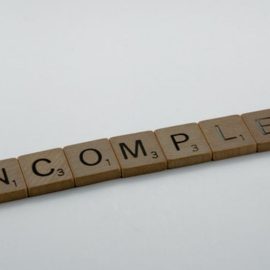

This article is an excerpt from the Shortform book guide to "The Success Principles" by Jack Canfield. Shortform has the world's best summaries and analyses of books you should be reading.
Like this article? Sign up for a free trial here .
How do habits influence your daily life? Are there any habits you’d like to get rid of? What is the best way to go about developing new habits?
Habits automate some of your life. Over time, you’ve learned to live your life a specific way, from safe driving to how you eat breakfast. But habits can also be undesirable behaviors, like drinking too much soda or being late. Eventually, you may suffer the consequences of your bad habit. For example, the consequence of drinking too much soda might be developing diabetes. The solution? Rid yourself of bad habits by replacing them with good ones.
Read more about developing new habits and how to stick with them.
How Long Does It Take to Form a Habit?
Successful people make a continuous effort to become successful. This requires letting go of destructive behaviors and developing new habits.
Studies suggest it takes about 13 weeks, or a quarter of a year, to cement a new habit. Aim to learn one new habit every quarter. Here’s how:
- List your bad habits. Identify which four you’d like to work on in the next year. Describe why each habit is a potentially harmful behavior. For example, forgetting someone’s name shortly after you meet them means you might not be able to get their attention later or greet them at a future event. Consider asking the people around you for an objective assessment of your bad habits.
- Identify a different behavior you could use instead. For example, you might research techniques to remember people’s names.
- Make a plan to implement your new habit. Determine what steps you need to take to make your habit a reality. For example, you might plan to try a new name-remembering technique several times per week.
Tips for Sticking With Your Habits
Forming a habit takes time, and barriers may arise that prevent you from succeeding. Try the following three techniques to increase the likelihood a new habit will stick:
- Write your desired habit on slips of paper and post them around your home. Visually reminding yourself about your habit makes you more likely to remember and cement it in the long term.
- Work with a partner. Recruit someone who is also working on a new habit so that you encourage each other to continue. Share your progress at least once each week.
- Commit to 100 percent follow-through. Choose to follow through on your habit completely rather than leaving any wiggle room for other options. Full commitment means you stick to your plan at all times, including when you’re tempted to cheat. For example, if the habit you’re working on is to adopt a vegetarian diet, commit to doing it 100 percent of the time rather than allowing yourself to cheat occasionally.
Exercise: Implement New Habits
Identify your bad habits and make a plan to work on the worst four.
List your bad habits.
Select four from the list that you’d like to work on in the next year. Describe why each habit is a potentially harmful behavior.
For each bad habit, list one to two suggestions for behaviors you could do instead.
Choose the habit you’d like to work on first. List the steps you’d take to make it a reality.

———End of Preview———
Like what you just read? Read the rest of the world's best book summary and analysis of Jack Canfield's "The Success Principles" at Shortform .
Here's what you'll find in our full The Success Principles summary :
- The 67 principles to help anyone achieve their goals and dreams
- Why achieving your goals requires you to invest your time and effort
- How to take responsibility for your own life






